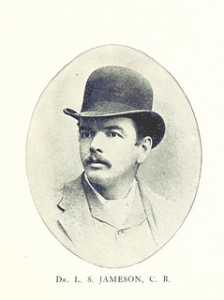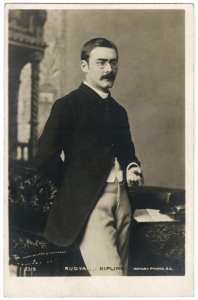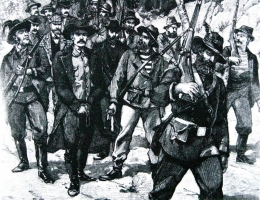 If you were stranded on a deserted island…
If you were stranded on a deserted island…
Have your children ever asked you this? I think that they think it is some sort of a riddle.
“Daddy what are the three things you would take with you if you had to be stranded on a desert island?”
They are always surprised when I tell them that it would be a boat, fuel and food. What I find interesting is that they are always surprised at my way of thinking. My daughters would apparently have the best wardrobe and electronics stores on this uninhabited inhabited island, but who knows. So as I ponder this, this weekend, I think true leadership is sometimes like being on an island. Sometimes you are the only one with the plan, you are the only one who knows the mission and at some point you may be the only one committed to the journey.
So growing up in the era I did, the only “real” deserted island I ever had any knowledge of was Gilligan’s Island. Now as you think of the players on this award winning “documentary” you realize that there could not have been a better team assembled to deal with the rigors of being stranded on an island. This is really not where this was headed, but lets go with it for a minute, I only want to address the two obvious leaders from the island, The Skipper and The Professor.
 As the captain of the SS Minnow when the group set sail on the infamous 3-hour tour out of Honolulu, it would stand to reason that the Skipper would emerge as the group’s leader. After all, the captain of any ship should serve as the positional leader of the team. However in this case, I don’t believe he wanted to be the leader. I do think he felt responsible for their “predicament”. When truly he was the one that saved them from dying in the storm. And a feeling of responsibility is a great place to start.
As the captain of the SS Minnow when the group set sail on the infamous 3-hour tour out of Honolulu, it would stand to reason that the Skipper would emerge as the group’s leader. After all, the captain of any ship should serve as the positional leader of the team. However in this case, I don’t believe he wanted to be the leader. I do think he felt responsible for their “predicament”. When truly he was the one that saved them from dying in the storm. And a feeling of responsibility is a great place to start.
 The Professor turns out to be the cerebral member of the group with an advanced education and an overall serious-natured intelligence. The Professor might be perceived as a likely leadership candidate for the group. However, book smarts and leadership savvy are not one in the same. Just because he used his intelligence to make their life on the island easier, he was not necessarily the leader. But he was a great resource to the team and the leader.
The Professor turns out to be the cerebral member of the group with an advanced education and an overall serious-natured intelligence. The Professor might be perceived as a likely leadership candidate for the group. However, book smarts and leadership savvy are not one in the same. Just because he used his intelligence to make their life on the island easier, he was not necessarily the leader. But he was a great resource to the team and the leader.
The problem with much of what happened on Gilligan’s Island is
Click here to read the rest of the article »





















